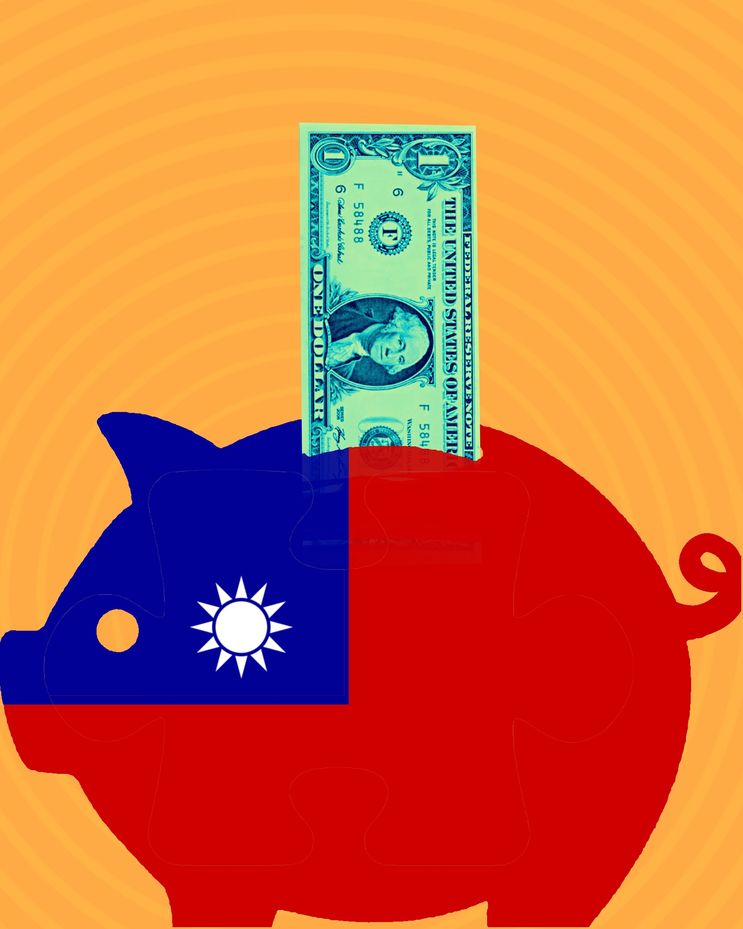
OPINION:
On the first anniversary of his presidency earlier this month, Taiwanese President Lai Ching-te announced the creation of the island nation’s first sovereign wealth fund (SWF), with a clear mandate to have all investments be made in foreign markets. This marks a pivotal moment for Taiwan’s economic strategy. A well-structured sovereign fund has the potential to become more than a financial tool; it can help to support national policy and shape Taiwan’s international position.
In addition to having 30 years of investment experience in New York — working across private equity, hedge funds and institutional asset management — I am associate dean at the School of Banking and Finance at National Sun Yat-sen University in Taiwan. Our school was established in partnership with Taiwan’s National Development Council and 22 Taiwanese banks as an innovation hub to train Taiwan’s next generation of fund managers.
With this dual vantage point — rooted in New York’s global financial markets and Taiwan’s academic and policy landscape — I am able to bring a unique perspective on how Taiwan can design a sovereign wealth fund that is both globally credible and locally grounded. Here’s a framework that can serve as a starting point for meaningful dialogue between government and industry practitioners in shaping Taiwan’s first SWF.
1. National policy objectives defined by government
The most critical layer of the framework is for the government to establish a clear investment mandate driving by its policy objectives, using the fund as a strategic tool to advance these national interests. The objectives may include enhancing Taiwan’s global visibility, supporting climate and innovation agendas or strengthening specific diplomatic and economic partnerships. A well-defined mission serves as a compass, providing strategic investment direction guided by national interests while allowing professional investment teams the discretion needed to determine how best to execute that mandate.
2. Professional investment execution
Once the investment mandate is set, Taiwan’s SWF should be designed to deliver strong investment performance in alignment with the government’s policy objectives. A top university endowment investment model could be used as a guiding model:
-A portion of the capital should be allocated through a fund-of-funds model, engaging top-tier external managers across asset classes (hedge funds, ETFs, private equity funds) based on global best practices and performance accountability.
-The remaining capital should be managed in-house, enabling direct investments in global equities, fixed income and private companies that are aligned with Taiwan’s strategic goals.
-This investment model leverages top fund managers to achieve portfolio diversification and performance, while preserving liquidity through direct investments in ETFs, public equities and fixed income.
All investments — whether externally delegated or internally managed — must be overseen by professionals with substantial international experience in asset allocation and investment management. With the government’s role focused on defining national purpose, it is the responsibility of experienced investment teams to select the most effective vehicles and investments to realize that vision and drive return performance.
3. Governance and evaluation with strategic discipline
Oversight should be entrusted to an independent board that appoints a chief investment officer to execute the investment strategy. The CIO, quipped with international industry experience, should be responsible for both internal direct investments and the selection and monitoring of external managers. Once the government has established the overarching investment mandate, it should work with the CIO to define appropriate benchmarks and performance review cycles tailored to the nature of each asset class. For example, public securities and ETFs should be reviewed annually and private equity and credit should be reviewed every three to five years.
Given the thematic and strategic nature of these investments, evaluations should incorporate both financial returns and alignment with the fund’s stated policy objectives. This structured rhythm allows for alignment with national priorities while preserving the autonomy and professionalism necessary for global-scale investment with a mission to drive investment returns.
Taiwan’s sovereign wealth fund is not merely a financial vehicle; it is a projection of competence, ambition and strategic clarity. With the right fund architecture, it can achieve investment performance, build long-term national resilience, elevate Taiwan’s global standing and cultivate a new generation of investment talent at home.
• Orina Chang is associate dean of the School of Banking and Finance at National Sun Yat-sen University in Taiwan.












